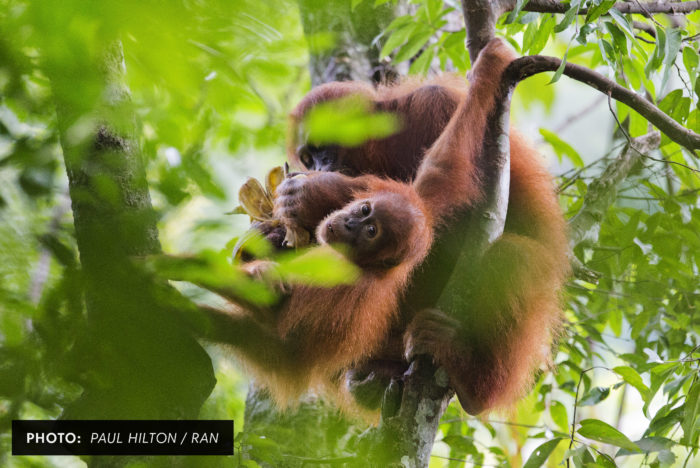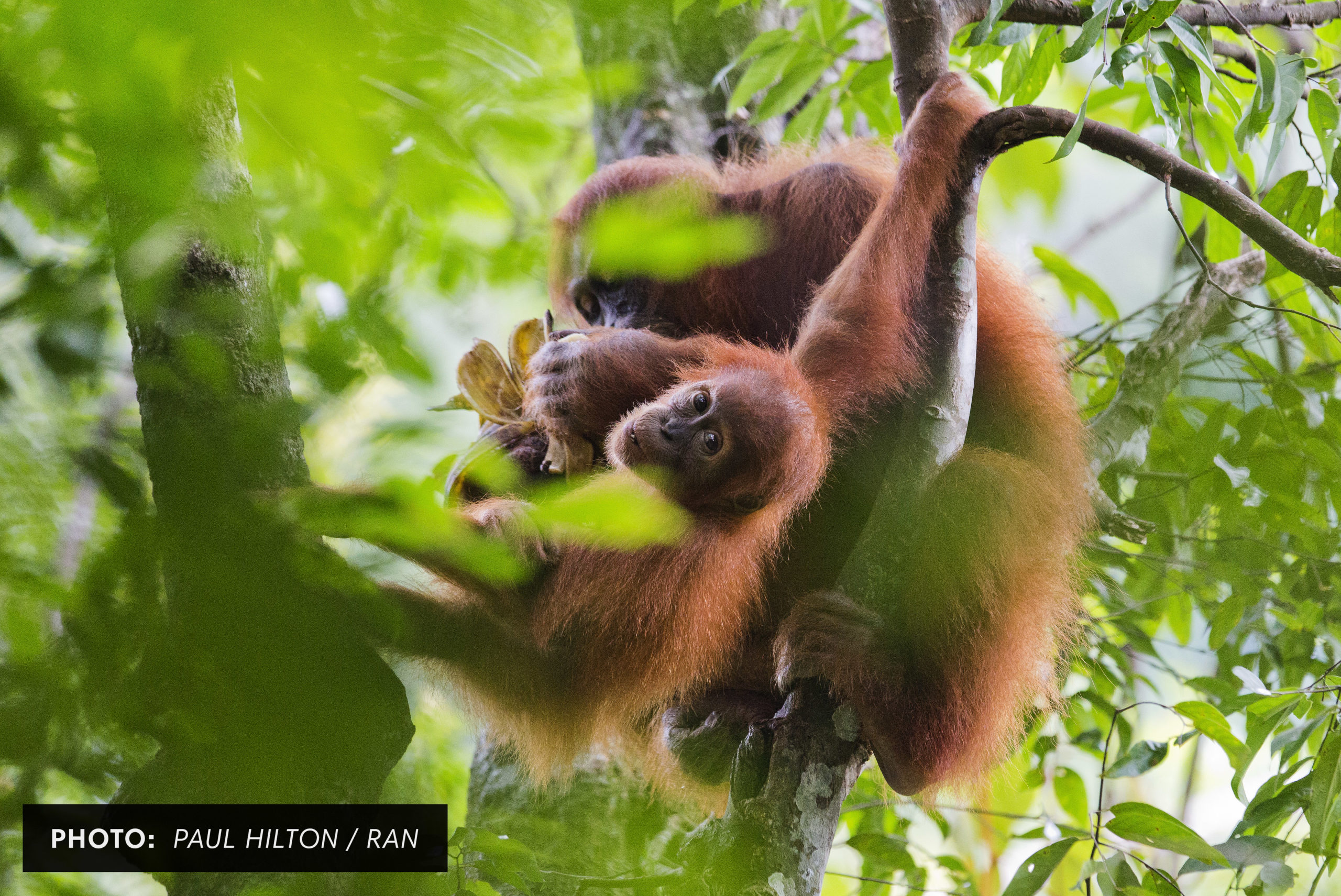
2020 was an unforgettable year for the Leuser Ecosystem. Between a growing number of no deforestation commitments from palm oil producers to major banks and brands committing to address deforestation and human rights abuses in their supply chains to progress towards a forest monitoring and response system, significant headway was made towards protecting this ecological treasure. While there is still much work to be done, our campaign to defend one of the world’s last tropical rainforests is finally bearing fruit.
We cannot thank YOU enough for this flowering progress. You’ve been with us every step, from signing petitions calling out banks and brands, to spreading awareness on social media, to making donations that allow us to investigate what’s really happening on the ground. Thank you!
Palm oil producers pass significant policies
This past November, palm oil titan Musim Mas responded to mounting pressure by issuing a five-year plan to implement No Deforestation, No Peatland, No Exploitation (NDPE) policies for its suppliers in the Aceh province, home to the bulk of the Leuser Ecosystem in Indonesia. One of the biggest palm oil conglomerates in the world, this development from Musim Mas follows similar moves by palm oil producers PT. Indo Sawit Perkasa, PT. Agra Bumi Niaga, and Mopoli Raya, who all announced no deforestation policies within the last two years.
And last October, one of the largest palm oil corporations in the world, Golden Agri Resources (GAR) broke ties with palm oil producer PT. Dua Perkasa Lestari due to human rights abuses uncovered by field investigations undertaken by RAN and other partners. While a welcome step, we demand that GAR works with local communities to ensure proper restitution is made after a decade of damage.
From the ground up
2020 also saw further progress towards a forest monitoring and response system in Indonesia and Malaysia. This work is being developed and funded by the RADD Consortium, a coalition of ten palm oil producers (including RAN targets, Nestlé, PepsiCo, Mondelēz and Unilever). Once completed, this will be the first large-scale, radar-based monitoring system with publicly available deforestation alerts.
The establishment of the RADD consortium in 2019 is in no small part thanks to pressure from RAN’s field teams and partners on the ground, who continue to collect satellite and field data exposing the widespread cutting, clearing and burning of tropical rainforests in Indonesia. This research is vital to our public-facing campaigns as well as closed-door negotiations.
Moving giants moves mountains
The swell of commitments from palm oil producers reflects the budding success of our campaign against major banks, brands and corporations to adopt NDPE policies.
In December, Nestlé unveiled its “forest footprint” detailing where and how its palm oil supply chain impacts forests and local and Indigenous communities, a first for major corporations. This move sets an important precedent for peers like Mars, Mondelēz, and Ferrero, who pledged greater transparency by 2020 but have failed to honor these promises.
Around the same time, Unilever released requirements for sourcing palm oil, cocoa, soy, pulp and paper, and tea to protect tropical rainforests and uphold the rights of workers, local communities, and Indigenous Peoples. And last February, we started the year with a monumental announcement from PepsiCo in which it pledged to address deforestation and labor and human rights abuses in its supply chains, ending a six-year campaign.
This mushrooming momentum proves our strategy works–by pressuring the major banks, brands and corporations to adopt responsible sourcing policies, suppliers are forced to follow suit, leading to real change on the ground.
For the love of the Leuser Ecosystem
The Leuser is a crown jewel of biodiversity.
Millions of people also depend on the Leuser Ecosystem, relying on these rich forests for drinking water, food, and their livelihoods. Logging, cutting and clearing threatens these forest-dependent communities, and has raised the threat of flooding in the region. Environmental destruction is also the culprit behind pandemics like COVID-19 and H1N1, opening Pandora’s box upon the global community.
As long as there’s breath in our lungs, we will never stop fighting to protect this natural splendor that so many call home.
To stay up to date and look back on all of our work in the region, check out Leuser Watch, a watchdog site where we publish evidence and investigations into deforestation occurring in the Leuser Ecosystem.
